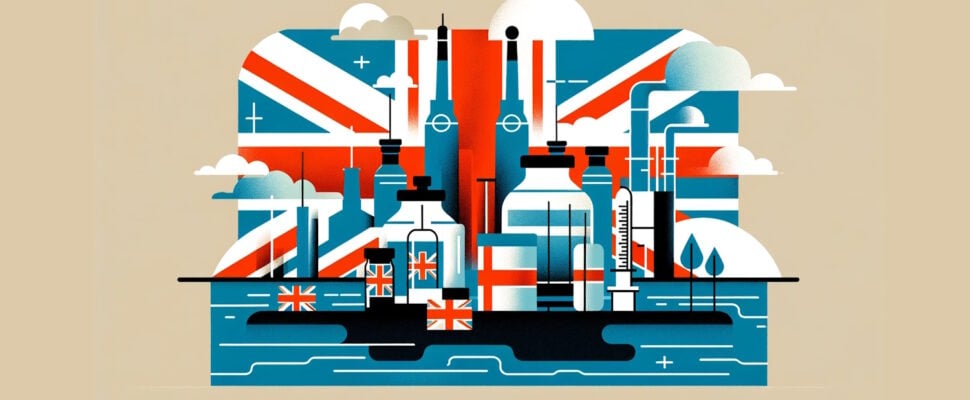Last year the UK-based pharma industry warned against the country’s waning competitiveness, condemning the government’s statutory scheme designed to control drug prices. UK-headquartered AstraZeneca joined the battle cry, claiming it would be choosing Ireland over Britain, a decision the company has now more than revised with a GBP 650 million investment in vaccine R&D and manufacturing in the UK.
We will continue to support the UK in driving innovation and patient access, building on the strong foundations which have been put in place
Pascal Soriot, CEO, AstraZeneca
Rebate Debate
The pharma industry has long been up and arms about the British government’s clawback system. While it managed to reach an agreement on a voluntary drug rebate scheme towards the end of last year, the industry found the new statutory scheme for branded medicines unacceptable. For the Association of the British Pharmaceutical Industry (ABPI) the scheme was “maintaining sales rebates at levels which have damaged the UK’s international standing with global life science companies.”
As a result, both AbbVie and Eli Lilly decided to exit the voluntary scheme, sending what ABPI called “a warning signal” to the UK government over “increasingly punitive revenue clawbacks.” AstraZeneca, already unhappy about the business environment in the country, had announced earlier in the year that the company would be choosing to establish its new facility in Ireland instead of the United Kingdom, wheren according to CEO Pascal Soriot “you know you’re going to get access and you’re going to get a price that can justify the investment.”
Betting on Britain
While AstraZeneca may have been critical of the UK, the country remains its headquarters and these new investments look like a vote of confidence after government initiatives such as the Life Sci for Growth plan, which set aside GBP 121 million to improve commercial clinical trials and up to GBP 48 million to prepare for future health emergencies.
A state aid package was most likely behind the investment pledge and agreement between the firm and the UK government. During a press event at the beginning of the year, AstraZeneca’s CEO had changed his tune, praising the British government for “helping incentivize companies to invest” through clinical trials programmes and favourable tax policies. In the government’s announcement about the new investment, UK Chancellor Jeremy Hunt concurred: “To drive investment, we’ve delivered one of the most competitive business tax regimes of any major economy, as part of our plan to help our key industries to grow.”
In total, the Big Pharma has pledged GBP 650 million to increase its UK footprint, including a new R&D facility and the expansion of its vaccine manufacturing capacity. The UK government says that some GBP 450 million will go to a new facility for vaccine R&D and manufacture to be located in Speke, Liverpool and that the new operationally net zero campus is aimed at helping to “boost the UK’s resilience to future pandemics.” A partnership between AstraZeneca and the UK Health Security Agency (UKHSA) “to advance science for developing and evaluating vaccines” also forms part of the plan, using technology from both AstraZeneca’s site in Speke and the UKHSA’s Vaccine Development Evaluation Centre (VDEC).
Apart from the Speke site, the drugmaker will invest an additional GBP 200 million in a separate site in Cambridge, where it already has a major R&D centre and which will be able to house an additional 1,000 employees.
“AstraZeneca’s planned investment would enhance the UK’s pandemic preparedness and demonstrates our ongoing confidence in UK life sciences,” said Soriot. “We will continue to support the UK in driving innovation and patient access, building on the strong foundations which have been put in place.”
A New Vaccines Direction?
This new vaccine-centred investment could be part of the company’s efforts to refocus its efforts in the area. After taking vaccines by storm and co-developing a COVID-19 shot with Oxford University, AstraZeneca has seen its Coronavirus vaccine revenues evaporate since the end of the pandemic, taking a 90 percent plunge as reported in its fourth quarter and full-year results for 2023.
To reinforce its vaccine portfolio, the British giant recently acquired the American biotech company, Icosavax, which is developing a combination vaccine candidate for respiratory syncytial virus (RSV) and human metapneumovirus (hMPV), for which there are currently no treatment or prevention options, for USD 1.1 billion.
Reinforcing global manufacturing
Beyond the expansion of its UK footprint, AstraZeneca is building up its manufacturing capacity elsewhere. Last month the firm announced an investment of USD 300 million in a new cell therapy facility in Rockville, Maryland while it also recently spent USD 26.5 million to build a new production line in Taizhou, China.
“We continue to invest in manufacturing around the world,” Soriot said in February, stressing the importance of incentives to encourage investment when choosing a country. “Is it a country where there is clearly an understanding that incentives have to be created through appropriate tax policies, but also importantly, access to innovation?”



